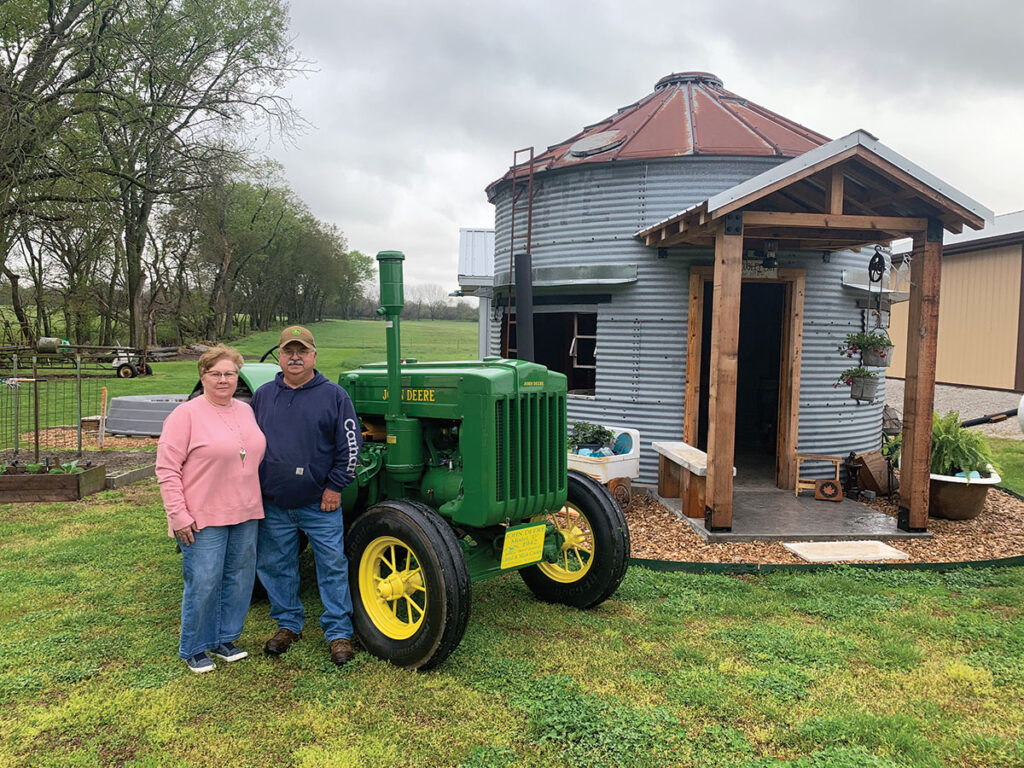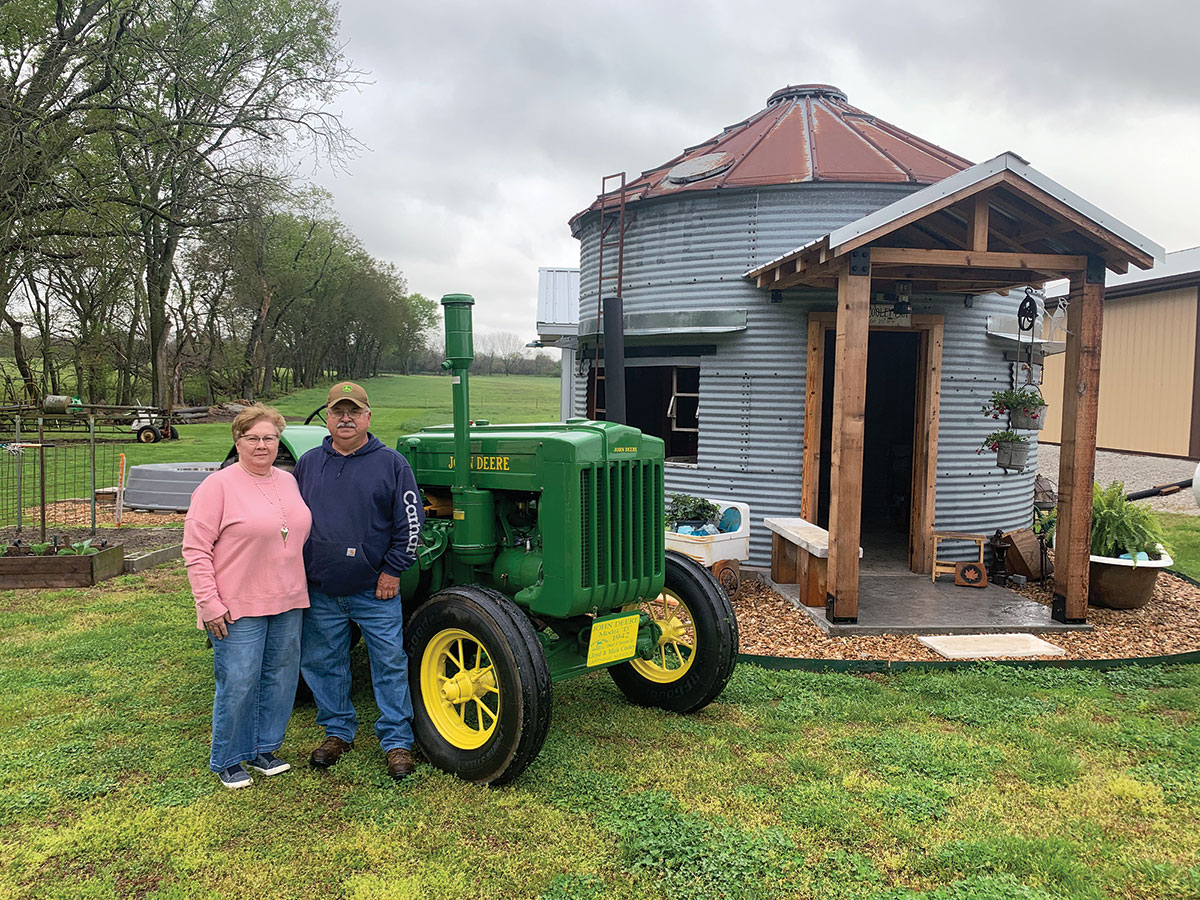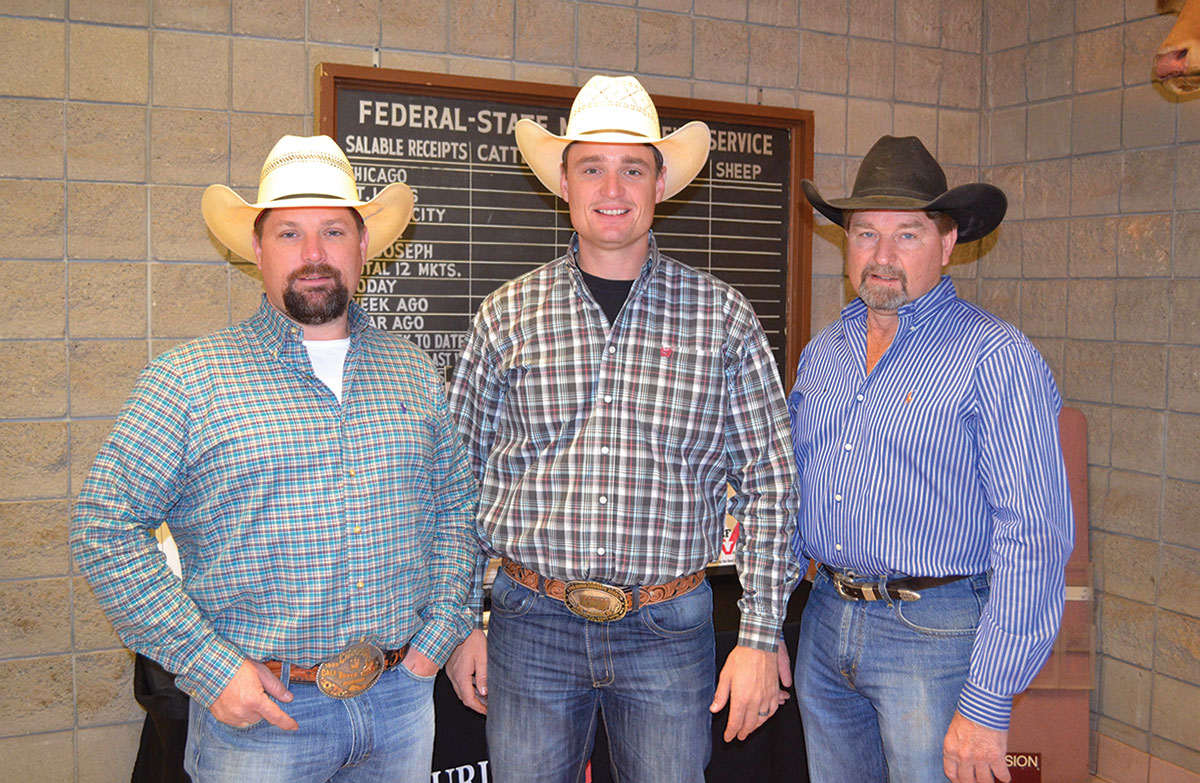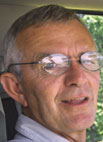
Mick Cooley is no stranger to hard work on and off the farm
CARTHAGE, MO. – Mick Cooley grew up in Carthage, Mo., helping his grandpa Lawrence Fasken and his dad Lloyd Cooley on the farm. As a young child, Mick lived on the north side of Carthage until he was 10 years old when the state made Highway 49 a four-lane highway. That expansion took their home, and in 1971 his parents, Lloyd and Sharon, built a house on the same farm Mick lives on today east of Carthage.
Growing up, Mick always loved to build and fix things. He recalls his grandpa having an old milk cart he would make into a race car, a rocket ship or just anything he could think of. When he got big enough to run equipment, his grandpa put him on the tractor to rake hay.
“I got to plow with the 730 John Deere, and I thought that was the biggest tractor ever built. Come to find out it’s not but it was big back then,” Mick said.
Mick’s parents had cattle and four gray dapple horses, Babe, Dolly, Tony and Jane. The family enjoyed going on covered wagon rides.
“Before I had my license, around 11 or 12, I would start from home in the morning and hitch up one team of horses and go through the country to grandpa’s house. I had to be there by a certain time because I had tractor work to do each day in the summer. I’d stop by Don Quade’s farm on the way when the corn was just about right and pick a few ears of corn to give to the horses. I shucked it on the ground right there. Don Quade went on an investigative hunt one day to see who was stealing his corn. Come to find out it was me and I was feeding it to the horses.”
When Mick was in seventh grade, he went to work at Moorehouse Sales, a general repair shop in Carthage. The owners were father and son Andy and Bob Moorehouse.
“I was hired to sweep the floor down there, but I was interested in what Bob and Andy were doing. Bob took care of the small engine repair and Andy took care of the machine work, welding and such. I would hurry up and sweep the floor and grab a wooden box and go put behind Andy while he was running the lathe so I could watch. Andy didn’t like anyone looking over his shoulder and he didn’t want some kid messing with him all the time so he would fire me. I would walk out the door then Bob would come out to the street and hire me back. We did that 3 times. Finally, Andy said, you’re such a pain kid, if you want to learn this, I’m going to show you and that’s how I learned to run lathes and weld.”
Later, Mick started doing repair work at Moorehouses.
“If someone walked in the door and you thought you could fix it, you took it on.”
One day when Mick was 16, he walked into work and Kenny Greninger, a local well-known welder was there. Mick worked on his portable welding machines and kept them running. Mick asked him, “Why don’t you show me how to weld aluminum?” One day Kenny drug in an old flat aluminum boat that he had taken a hammer to and poked holes in. “He handed me the rod and said, ‘I’m going to show you how to do this and show you once.”’ Kenny showed him and said he would be back tomorrow and wanted all the holes filled. “I spent hours that night welding all the holes.”
“If someone walked in the door and you thought you could fix it, you took it on.”
— Mick Cooley
In 1981, Mick married his wife, Debbie Holland, who grew up on a sheep and hog farm. Two years later, he left Moorehouses after 10 years of service and started as a machinist millwright at the Atlas Powder plant, which was an explosive and agricultural fertilizer business.
He maintained the equipment for the agricultural fertilizer side for the prilling operation. In 1993 he went to work for Dyno Nobel as the maintenance lead with explosives.
Along with working in town, Mick and his dad Lloyd farmed together running about 150 cow/calf pairs. Mick and Lloyd had around 600 acres rented and did custom hay baling. In 2018, they sold the cows due to health reasons, with Lloyd and Mick being unable to work 70 to 80 hours a week and care for the cattle.
Mick retired from Dyno in 2019, but still does some consulting for them. He has helped them by disposing of one of their byproducts, the wastewater, to use as fertilizer. Mick takes the wastewater and augments it with an ammonia nitrate solution and then makes a usable fertilizer out of it.
“When I retired, I was trying to figure out what I was going to do. A gentleman asked if I could repair a cylinder for him and with word of mouth it ended up being a pretty steady income.” Mick works on small engines and ag-related repairs in his shop at home.
Together Mick and Debbie have two grown children, Zack and Whitney.
Debbie has worked at Schreiber Foods for 35 years. “Even though our kids didn’t end up going into agriculture, they learned about work ethic and are both very successful,” Debbie said.
Mick and Debbie also have two grandchildren Jay (6) and Layla (8) who love to help “G” as they call Mick in the shop and ride in the tractors. Jay says “G” can fix anything.
Mick recently built a binzebo with a kitchen added on the back for gatherings with friends and family. Layla calls it “the can”, so it has been named “The Cooley Can.”
Mick enjoys rebuilding tractors and has restored a JD 1942 Model D. He also has a “doodlebug tractor” he bought in Ohio, which is a 1930 model A car with a 1925 truck differential. He has added several additional features to it since he purchased it. He stated during the World War II, people needed a tractor but there few available, so they used what items they had to built the doodlebugs to serve as a tractor.
Mick and his dad have worked together for a long time and continue to have the hay operation that him and his dad have had for years and years. His dad still helps on the farm when he can. Mick said he really misses having cattle and would like to get a few head of cattle again when his Debbie retires.







